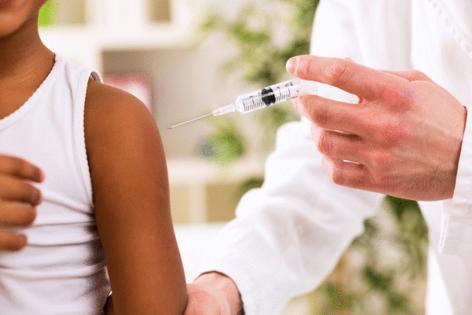Washington state whooping cough cases soar as vaccination rates drop
Published in News & Features
SEATTLE — Washington state reported 25 times as many whooping cough cases last year as the year before, according to new data that serve as a reminder of the disease’s continued surge here and nationwide.
The state Department of Health in a Friday statement said the rise in cases last year was “staggering” and coincides with a drop in whooping cough vaccination rates among young children. Similar spikes in the highly infectious disease have hit many other parts of the U.S., resulting in at least 10 deaths last year, including a child in Spokane.
According to the state’s recent annual summary on whooping cough, or pertussis, there were 2,261 confirmed and probable cases in Washington in 2024. There were 87 cases in 2023.
DOH added Friday that as of the end of May, the state already had seen 1,314 cases, compared to about 317 at the same time last year. About 90 of the cases this year were among infants younger than 1 year old.
Local and state health officials have been warning of the persistent spread of whooping cough for months, urging immunization, especially among young children. Vaccination rates for whooping cough fell from 73% in 2019 to 65% last year among children between 1 1/2 and 3 years old, DOH said Friday.
“The surge in pertussis cases is a stark reminder of how critical vaccinations are in protecting our most vulnerable, especially infants, for whom it can be life-threatening,” Dr. Tao Sheng Kwan-Gett, the state’s health officer and a pediatrician, said in a statement last November.
Pertussis is a bacterial disease that can cause coldlike symptoms and eventually turn into severe coughing spells, according to DOH. People with severe complications could experience apnea, pneumonia, convulsions, collapsed lungs, rip fractures and brain damage, DOH said.
The disease is most dangerous for infants under 1, who may struggle to breathe.
Whooping cough symptoms usually start five to 21 days after exposure, DOH said. The infection is generally treated with antibiotics.
“It’s important to start treatment as soon as possible to help keep the disease from spreading to others,” DOH said in the statement. “Early treatment can also make the symptoms end sooner and be less severe.”
Health officials encourage everyone to stay up-to-date on their whooping cough vaccinations, which is the best defense against the disease. Vaccination is especially important for people at higher risk of serious illness or those who are in close contact with them, including infants, pregnant people, those with weakened immune systems or chronic respiratory illnesses and older adults, especially those who are more susceptible to pneumonia, DOH said.
©2025 The Seattle Times. Visit seattletimes.com. Distributed by Tribune Content Agency, LLC.







Comments